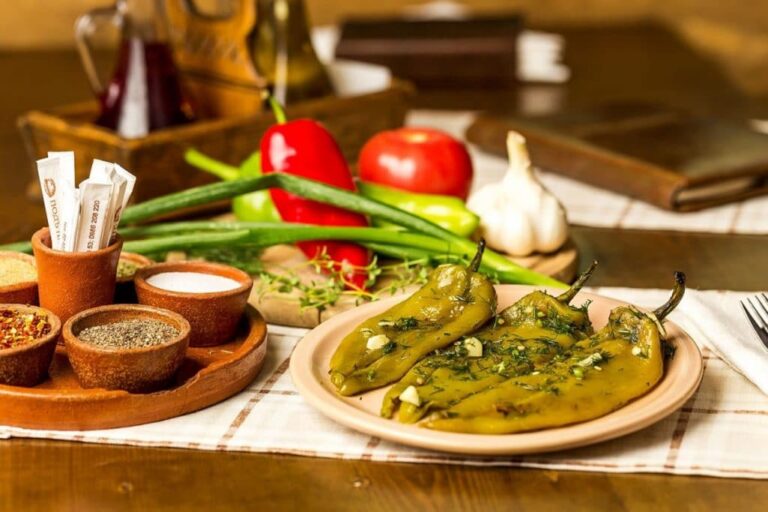Introduction: Bread in Bulgarian cuisine
Bread is an essential staple food in Bulgarian cuisine and is present on every dining table. Bulgarians have a long-standing tradition of baking bread that dates back to ancient times. The country’s diverse geography and climate have led to the development of unique regional variations of bread, each with its distinct flavor and texture. Breadmaking in Bulgaria is not just a culinary art but a cultural practice that brings people together.
Breadmaking traditions in Bulgaria
The breadmaking process in Bulgaria is steeped in tradition, with many families using recipes that have been passed down from generation to generation. The ingredients used in Bulgarian bread are simple, usually consisting of flour, water, and yeast. Bulgarians pride themselves on the quality of their wheat, which is considered some of the best in the world. The wheat is milled into flour, and the dough is then kneaded by hand and left to rise naturally. The bread is then baked in a wood-fired oven, which gives it a unique flavor.
The role of bread in Bulgarian culture
In Bulgarian culture, bread is a symbol of hospitality and prosperity. It is customary for guests to be welcomed with bread and salt, which is a sign of respect and friendship. Bread is also a central part of many religious ceremonies, such as weddings and funerals. The bread is blessed, and then it is shared among the participants, signifying unity and community.
Famous types of Bulgarian bread
One of the most famous types of Bulgarian bread is the kozunak, which is a sweet bread typically eaten during Easter. Kozunak is a rich, buttery bread that is studded with raisins and flavored with vanilla and orange zest. Another famous type of bread is the banitsa, which is a savory pastry made with filo dough and filled with cheese or spinach.
Regional varieties of Bulgarian bread
Bulgaria’s diverse geography has led to the development of unique regional variations of bread. In the Rhodope Mountains, for example, the bread is made with a mixture of wheat and rye flour, giving it a dense texture and a sour flavor. In the Danube Valley, the bread is made with cornmeal, giving it a sweet and nutty flavor.
Are there any traditional Bulgarian breads?
Yes, there are many traditional Bulgarian breads. These include the pita, a type of flatbread that is often served with dips and spreads, and the mekitsa, a deep-fried doughnut-like bread that is typically served for breakfast. Another traditional bread is the kompir, which is a dense, unleavened bread that is made with potatoes.
The revival of traditional Bulgarian breads
In recent years, there has been a renewed interest in traditional Bulgarian breads. Many bakeries are now using traditional recipes and techniques to create bread that is both delicious and authentic. This revival of traditional breadmaking is not only preserving an important part of Bulgarian culture but also providing a unique culinary experience for visitors.
Conclusion: The future of Bulgarian breadmaking
Bulgarian breadmaking is a rich and vibrant tradition that is an essential part of the country’s culinary heritage. As the world becomes more connected, it is important to preserve these traditions and share them with others. With the revival of traditional Bulgarian breads and the use of modern techniques and ingredients, the future of Bulgarian breadmaking looks bright.

